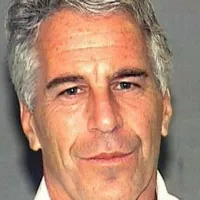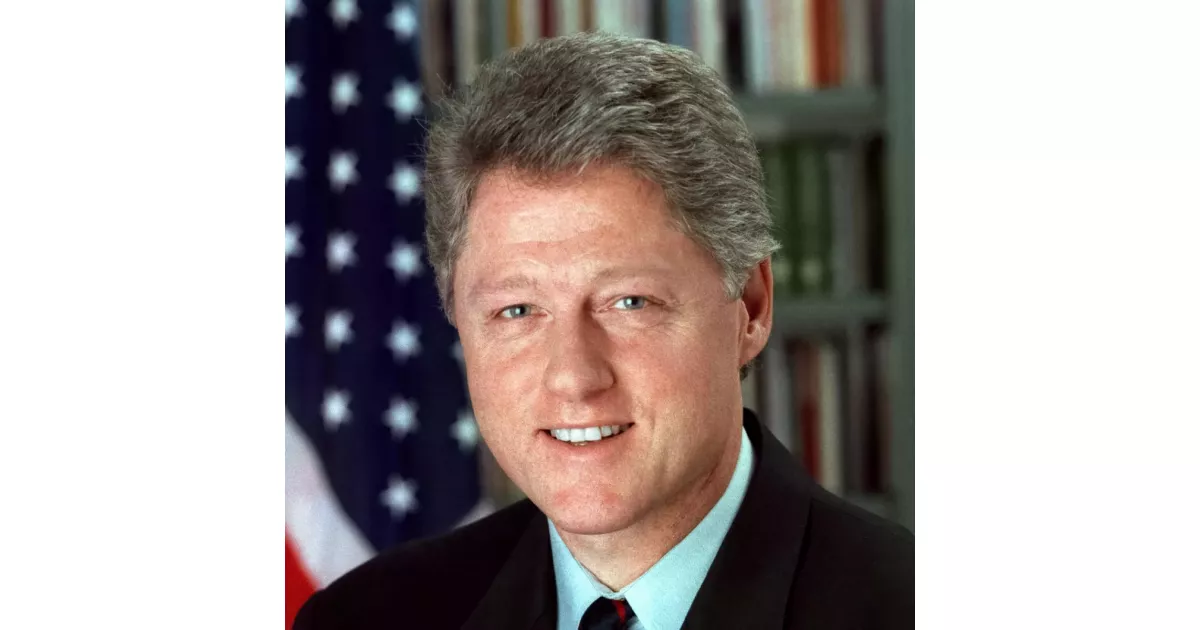Discover the career path of Bill Clinton, from the first major opportunity to industry-changing achievements.
Bill Clinton, the 42nd U.S. President (1993-2001), served as Arkansas's Attorney General (1977-1979) and Governor (1979-1981, 1983-1992). A Democrat, his "Third Way" centrism, dubbed Clintonism, shaped his presidency. Key achievements include economic prosperity, NAFTA, and welfare reform. He faced impeachment proceedings related to his affair with Monica Lewinsky, but was acquitted. His presidency is viewed as a period of relative peace and economic growth, though marked by political polarization and scandal.
1963: Influential Moments
In 1963, Bill Clinton had two influential moments: meeting President John F. Kennedy and watching Martin Luther King Jr.'s "I Have a Dream" speech, which led to his decision to become a public figure.
1972: Campaign Work in Texas
In 1972, Bill Clinton moved to Texas with Hillary Rodham to lead George McGovern's campaign efforts there, working with future Dallas mayor Ron Kirk and future Texas governor Ann Richards.
1972: Worked on McGovern Campaign
In 1972, Bill Clinton postponed his summer plans to be a coordinator for the George McGovern campaign for the 1972 United States presidential election.
1972: Anti-Republican mood
The Watergate scandal bolstered Bill Clinton's campaign for the House of Representatives in 1972
1974: Ran for House of Representatives
In 1974, Bill Clinton ran for the House of Representatives in Arkansas's 3rd district, and was narrowly defeated by John Paul Hammerschmidt.
1976: Elected Arkansas Attorney General
In 1976, Bill Clinton was elected as the Attorney General of Arkansas.
1977: Attorney General of Arkansas
In 1977, Bill Clinton served as the attorney general of Arkansas.
1978: Defeated Lowe for governor
In 1978, Bill Clinton defeated Lowe, a Republican candidate, for governor.
1978: Election as Governor of Arkansas
In 1978, Bill Clinton was elected Governor of Arkansas, defeating Republican candidate Lynn Lowe. At 32 years old, Clinton became the youngest governor in the country at the time, marking a significant career milestone.
1979: Governor of Arkansas
In 1979, Bill Clinton served as the Governor of Arkansas.
January 1981: Joined law firm
In January 1981, after leaving office, Bill Clinton joined the law firm of Wright, Lindsey and Jennings in Little Rock.
1981: Governor of Arkansas
In 1981, Bill Clinton was Governor of Arkansas
1982: Defeated White for governor
In 1982, Bill Clinton defeated Republican candidate Frank White for governor.
1982: Re-elected as governor
In 1982, Bill Clinton was elected governor of Arkansas for a second time, and he maintained the office for ten years.
September 1983: Education reforms passed
In September 1983, after Bill Clinton called a special legislative session, education reforms passed in Arkansas, following the work of the Arkansas Education Standards Committee.
1983: Governor of Arkansas
In 1983, Bill Clinton served as the Governor of Arkansas.
1984: Defeated Freeman for governor
In 1984, Bill Clinton defeated Woody Freeman, a Republican candidate, for governor.
1985: Delivered Democratic response to State of the Union Address
In 1985, Bill Clinton delivered the Democratic response to President Ronald Reagan's State of the Union Address.
1986: Arkansas changes gubernatorial term
Effective with the 1986 election, Arkansas changed its gubernatorial term of office from two to four years. Bill Clinton also served as chair of the National Governors Association from 1986 to 1987.
1986: Defeated White for governor
In 1986, Bill Clinton defeated Republican candidate Frank White for governor again.
1987: Chair of National Governors Association
From 1986 to 1987, Bill Clinton served as chair of the National Governors Association, bringing him to an audience beyond Arkansas.
1987: Media speculation about presidential race
In 1987, the media speculated that Bill Clinton would enter the presidential race, but Clinton decided to remain as Arkansas governor and endorsed Michael Dukakis for the nomination.
1988: Address at Democratic National Convention
In 1988, Bill Clinton gave the nationally televised opening night address at the Democratic National Convention, but it was criticized for being too long.
1989: Iran Brings Case Against U.S. in International Court of Justice
In 1989, Iran brought a case against the U.S. in the International Court of Justice after the shooting down of Iran Air Flight 655 by the U.S. Navy guided missile cruiser, which was later settled in February 1996 by the Clinton administration.
1990: Defeated Nelson for governor
In 1990, Bill Clinton defeated Sheffield Nelson, a Republican candidate, for governor.
1990: Headed Democratic Leadership Council
In 1990, Bill Clinton headed the moderate Democratic Leadership Council.
December 1991: "Safe, legal, and rare"
In December 1991, Bill Clinton first used the slogan, "safe, legal, and rare" while campaigning.
1991: Headed Democratic Leadership Council
In 1991, Bill Clinton headed the moderate Democratic Leadership Council.
March 26, 1992: "I feel your pain"
On March 26, 1992, during a Democratic fund raiser, Robert Rafsky confronted Bill Clinton about AIDS, to which Clinton replied, "I feel your pain". This televised exchange led to AIDS becoming an issue in the 1992 presidential election.
1992: Capital punishment stance
By 1992, Bill Clinton was insisting that Democrats "should no longer feel guilty about protecting the innocent". During his final term as governor, Arkansas performed its first executions since 1964.
1992: Governor of Arkansas
In 1992, Bill Clinton served as the Governor of Arkansas.
1992: Elected President
In 1992, Bill Clinton was elected President of the United States, defeating incumbent George H.W. Bush and Ross Perot.
1992: Won presidential election
In 1992, Bill Clinton won the presidential election against George H. W. Bush and Ross Perot. Clinton's victory ended twelve years of Republican rule of the White House and gave Democrats full control of the United States Congress.
1992: Clinton Proposes Sending a Peace Envoy to Northern Ireland
In 1992, before his presidency, Bill Clinton proposed sending a peace envoy to Northern Ireland, but this was dropped to avoid tensions with the British government.
January 20, 1993: Inauguration as 42nd President
On January 20, 1993, Bill Clinton was inaugurated as the 42nd president of the United States. Clinton was physically exhausted at the time, and had an inexperienced staff.
January 22, 1993: Reversed restrictions on family planning programs
On January 22, 1993, Bill Clinton reversed restrictions on domestic and international family planning programs that had been imposed by Reagan and Bush.
February 15, 1993: First address to the nation
On February 15, 1993, Bill Clinton made his first address to the nation, announcing his plan to raise taxes to close a budget deficit.
September 1993: Oslo Accords Signed
In September 1993, secret negotiations mediated by Clinton led to the Oslo Accords, a historic declaration of peace between Israel and the Palestine Liberation Organization (PLO). The Accords were signed at the White House on September 13.
September 22, 1993: Clinton's health care reform speech to Congress
On September 22, 1993, President Clinton delivered a major speech to Congress outlining a health care reform plan aimed at achieving universal coverage. The plan, led by Hillary Clinton, faced strong opposition and ultimately failed despite a Democratic majority in Congress.
November 30, 1993: Signing of the Brady Bill
On November 30, 1993, President Clinton signed the Brady Bill into law, mandating federal background checks for firearm purchases in the United States and imposing a five-day waiting period. He also expanded the Earned Income Tax Credit for low-income workers.
1993: President of the United States
In 1993, Bill Clinton became the 42nd president of the United States.
1993: Clinton Pressures European Leaders on Bosnian War Policy
In 1993, Bill Clinton pressured Western European leaders to adopt a strong military policy against Bosnian Serbs during the Bosnian War.
1993: Signed Family and Medical Leave Act
In 1993, Bill Clinton signed the Family and Medical Leave Act, which required large employers to allow employees to take unpaid leave for pregnancy or a serious medical condition. This action had bipartisan support.
1993: Clinton Minimizes Tariff Levels in Chinese Imports
In 1993, Clinton aimed to increase trade with China, minimizing import tariffs and offering the country most favored nation status, his administration minimized tariff levels in Chinese imports.
1993: Appointment of Ruth Bader Ginsburg
In 1993, Clinton appointed Ruth Bader Ginsburg as a justice to the Supreme Court.
January 1, 1994: Signing of the North American Free Trade Agreement
On January 1, 1994, President Clinton signed the North American Free Trade Agreement (NAFTA) into law. Clinton supported the treaty throughout his first year in office, despite disagreement within the Democratic party. The bill passed the House and was ratified by the Senate.
July 29, 1994: Launch of the first White House website
On July 29, 1994, the Clinton administration launched the first official White House website, whitehouse.gov. This marked the beginning of a movement toward web-based communication within the government, with Clinton and Gore pushing federal agencies to utilize the Internet.
September 1994: Signing of the Omnibus Crime Bill
In September 1994, President Clinton signed the Omnibus Crime Bill into law. The bill expanded the death penalty to include crimes not resulting in death, such as running a large-scale drug enterprise, and included a subsection of assault weapons ban for a ten-year period.
1994: Clinton Declares Iran a "State Sponsor of Terrorism"
In 1994, Bill Clinton declared that Iran was a "state sponsor of terrorism" and a "rogue state", marking the first time that an American president used that term.
1994: Clinton Pressures European Leaders on Bosnian War Policy
In 1994, Bill Clinton pressured Western European leaders to adopt a strong military policy against Bosnian Serbs during the Bosnian War.
1994: Appointment of Stephen Breyer
In 1994, Clinton appointed Stephen Breyer as a justice to the Supreme Court.
1994: Lopsided defeat of national Democrats
The lopsided defeat of national Democrats in the 1994 elections partially led to Bill Clinton's chances of being re-elected initially seeming slim.
November 1995: Clinton Visits Northern Ireland
In November 1995, during a ceasefire during the Troubles, Bill Clinton became the first U.S. president to visit Northern Ireland, playing a key role in peace talks.
December 6, 1995: White House Conference on HIV/AIDS
On December 6, 1995, President Bill Clinton delivered a speech at the White House Conference on HIV/AIDS. He projected the development of a cure for AIDS and a vaccine to prevent further infection. He announced new initiatives to coordinate AIDS research, integrate HIV prevention with substance abuse prevention, and ensure equal access to health care for people with HIV and AIDS.
1995: U.S. and NATO Bomb Bosnian Serb Targets
In 1995, U.S. and NATO aircraft bombed Bosnian Serb targets, leading to the deployment of U.S. peacekeepers to Bosnia to uphold the Dayton Agreement.
1995: Approval rating got as low as 40 percent
In early 1995, Bill Clinton's approval rating got as low as 40 percent, which led to several high-profile Democrats suggesting he drop out of the race. However, in mid-1995, public opinion of Clinton up-ticked and early 1996 polls found he had a lead of up to 20 points over his likely Republican opponent Bob Dole.
February 1996: Clinton Administration Pays Iran Settlement
In February 1996, the Clinton administration agreed to pay Iran US$131.8 million in settlement to discontinue a case brought by Iran in 1989 against the U.S. in the International Court of Justice after the shooting down of Iran Air Flight 655 by the U.S. Navy guided missile cruiser.
September 21, 1996: Signing of the Defense of Marriage Act
On September 21, 1996, President Clinton signed the Defense of Marriage Act (DOMA) into law. DOMA defined marriage for federal purposes as the legal union of one man and one woman, and it allowed individual states to refuse to recognize gay marriages performed in other states. The signing was considered a political decision during a re-election year.
September 30, 1996: Signing of the Illegal Immigration Reform and Immigrant Responsibility Act
On September 30, 1996, as part of an initiative to curb illegal immigration, President Clinton signed the Illegal Immigration Reform and Immigrant Responsibility Act (IIRIRA). The U.S. Commission on Immigration Reform, appointed by Clinton, recommended reducing legal immigration from about 800,000 people a year to about 550,000.
1996: Re-election to the Presidency
In 1996, Bill Clinton won re-election as President, defeating Bob Dole and Ross Perot.
1996: State Department Warning about bin Laden
In 1996, the State Department issued a warning about bin Laden, prompting Clinton to order military missions to capture or kill him, all of which were unsuccessful.
1996: Leading presidential election polls
In early 1996, polls found that Bill Clinton had a lead of up to 20 points over Bob Dole in the presidential election.
January 1997: State of the Union address proposing health coverage for children
In his January 1997 State of the Union address, President Clinton proposed a new initiative to provide health coverage to up to five million children. This led to the creation of the State Children's Health Insurance Program (SCHIP).
1997: Gross national debt
At the end of the fiscal year of 1997, the U.S. Treasury reported a gross debt of $5.413 trillion during Bill Clinton's presidency.
August 1998: Cruise Missile Strikes on Terrorist Targets
In August 1998, Bill Clinton ordered cruise missile strikes on terrorist targets in Afghanistan and Sudan, specifically targeting the Al-Shifa pharmaceutical factory in Sudan, suspected of assisting bin Laden in making chemical weapons, and bin Laden's terrorist training camps in Afghanistan. The Al-Shifa factory was destroyed, resulting in casualties and a medicine shortage in Sudan.
October 31, 1998: Clinton Signs the Iraq Liberation Act
On October 31, 1998, Bill Clinton signed the Iraq Liberation Act, which instituted a policy of "regime change" against Iraq, though it did not provide for direct American military intervention.
1998: Clinton Plays Key Role in Good Friday Agreement
In 1998, Bill Clinton played a key role in the peace talks that produced the Good Friday Agreement in Northern Ireland.
1998: Impeachment Proceedings
In 1998, during his impeachment proceedings, Clinton's job approval rating reached its highest point.
1998: Budget Surplus
In 1998, the Congressional Budget Office reported a budget surplus of $69 billion during Bill Clinton's presidency.
1998: Clinton Warns Congress About Saddam Hussein's Weapons
In Bill Clinton's 1998 State of the Union Address, he warned Congress that Iraqi dictator Saddam Hussein was building an arsenal of chemical, biological and nuclear weapons, although there was no evidence for that claim.
March 24, 1999: Start of NATO Bombing Campaign
On March 24, 1999, Bill Clinton authorized the use of U.S. Armed Forces in a NATO bombing campaign against Yugoslavia, named Operation Allied Force, due to human rights concerns.
May 1999: American Bombing of Chinese Embassy
In May 1999, relations were damaged briefly by the American bombing of the Chinese embassy in Belgrade. Clinton apologized for the bombing, stating it was accidental.
June 10, 1999: End of NATO Bombing Campaign
On June 10, 1999, the NATO bombing campaign against Yugoslavia, authorized by Bill Clinton, ended with United Nations Security Council Resolution 1244. The resolution placed Kosovo under UN administration and authorized a peacekeeping force to be deployed to the region.
1999: American and British Aircraft Attack Iraqi Air Defenses
In 1999, American and British aircraft in the Iraq no-fly zones attacked hostile Iraqi air defenses 166 times.
1999: Impeachment Proceedings
In 1999, during his impeachment proceedings, Clinton's job approval rating reached its highest point.
1999: Budget Surplus
In 1999, the Congressional Budget Office reported a budget surplus of $126 billion during Bill Clinton's presidency.
October 10, 2000: Signing of United States–China Relations Act
On October 10, 2000, Clinton signed into law the United States–China Relations Act of 2000, which granted permanent normal trade relations (PNTR) trade status to China. The president asserted that free trade would gradually open China to democratic reform.
December 2000: Attempt to End the Israeli-Palestinian conflict
In December 2000, Clinton attempted to end the Israeli-Palestinian conflict at Bolling Air Force Base, in which the president offered the Clinton Parameters
2000: American and British Aircraft Attack Iraqi Air Defenses
In 2000, American and British aircraft in the Iraq no-fly zones attacked hostile Iraqi air defenses 78 times.
2000: Budget Surplus
In 2000, the Congressional Budget Office reported a budget surplus of $236 billion during Bill Clinton's presidency.
January 19, 2001: Clinton's Law License Suspended
On January 19, 2001, Bill Clinton's law license was suspended for five years after he acknowledged conduct prejudicial to the administration of justice in the Jones case.
2001: Leaves Office
In 2001, Bill Clinton left office with a high approval rating.
2001: End of Presidential Term
In 2001, Bill Clinton's term as the 42nd president of the United States concluded.
2002: Clinton Warns of Consequences
In 2002, Bill Clinton warned that pre-emptive military action against Iraq would have unwelcome consequences.
2004: Clinton Appointed to Head Relief Effort
In 2004, U.N. secretary-general Kofi Annan appointed Bill Clinton to head a relief effort in the aftermath of the Asian tsunami.
January 2005: Establishment of Bush-Clinton Tsunami Fund
In January 2005, following the 2004 Asian tsunami, Bill Clinton joined George H. W. Bush to establish the Bush-Clinton Tsunami Fund.
2005: Clinton Criticizes Bush Administration
In 2005, Bill Clinton criticized the Bush administration's handling of emissions control at the United Nations Climate Change conference in Montreal.
2005: Clinton Foundation's Global Initiatives
In 2005, Bill Clinton started the Clinton Global Initiative (CGI) to address world problems, such as global public health, poverty alleviation and religious and ethnic conflict. He also announced through his foundation an agreement with manufacturers to stop selling sugary drinks in schools.
2006: Clinton Foundation Joins Climate Leadership Group
In 2006, the Clinton Foundation joined with the Large Cities Climate Leadership Group to improve cooperation among those cities, with Clinton meeting with foreign leaders to promote this initiative.
2007: Release of "Giving: How Each of Us Can Change the World"
In 2007, Bill Clinton released "Giving: How Each of Us Can Change the World", which became a New York Times Best Seller.
August 27, 2008: Clinton Endorses Obama at DNC
On August 27, 2008, Bill Clinton enthusiastically endorsed Barack Obama at the 2008 Democratic National Convention, stating Obama was "ready to lead".
2008: Campaigning for Hillary Clinton
In 2008, Bill Clinton campaigned for his wife's presidential campaign.
2008: Foundation Announces Anti-Malaria Drug Deals
In 2008, Foundation director Inder Singh announced deals to reduce the price of anti-malaria drugs by 30 percent in developing nations. Bill Clinton also spoke in favor of California Proposition 87 on alternative energy, which was voted down.
2009: Clinton's Visit to North Korea
In 2009, Bill Clinton traveled to North Korea on behalf of two American journalists, Euna Lee and Laura Ling, who were imprisoned there. After Clinton met with North Korean leader Kim Jong-il, Kim issued a pardon.
2009: United Nations Special Envoy to Haiti
In 2009, Bill Clinton was named United Nations Special Envoy to Haiti following a series of hurricanes which caused $1 billion in damages.
2010: Clinton Bush Haiti Fund
After the 2010 Haiti earthquake, Clinton founded the Clinton Bush Haiti Fund with George W. Bush and Barack Obama.
2010: Clinton's Support for Haiti Recovery Efforts
In 2010, Bill Clinton and George W. Bush coordinated efforts to raise funds for Haiti's recovery after the earthquake. Clinton also announced support for the inauguration of NTR, Ireland's first environmental foundation.
2012: Clinton Nominates Obama at DNC
At the 2012 Democratic National Convention, Bill Clinton gave a speech nominating Barack Obama.
2016: Clinton Supports Hillary's Presidential Campaign
During the 2016 presidential election, Bill Clinton encouraged voters to support Hillary, made appearances on the campaign trail, and served as a member of the electoral college for the state of New York, voting for Hillary and Tim Kaine.
2016: Campaigning for Hillary Clinton
In 2016, Bill Clinton campaigned for his wife's presidential campaign.
September 7, 2017: One America Appeal
On September 7, 2017, Bill Clinton partnered with former presidents Jimmy Carter, George H. W. Bush, George W. Bush, and Barack Obama to work with One America Appeal to help the victims of Hurricane Harvey and Hurricane Irma in the Gulf Coast and Texas communities.
2020: Clinton Serves as Elector
In 2020, Bill Clinton served as a member of the United States Electoral College from New York, casting his vote for the Democratic ticket of Joe Biden and Kamala Harris.
November 2024: Publication of "Citizen: My Life After the White House"
In November 2024, Bill Clinton's second volume of memoirs, "Citizen: My Life After the White House", was published.
2024: Endorsement of Biden's Re-election Campaign
In 2024, Bill Clinton was one of the first public figures to endorse Joe Biden's re-election campaign. He defended Biden after his first presidential debate. After Biden withdrew his candidacy, Bill and Hillary Clinton endorsed Kamala Harris and praised Biden.
Mentioned in this timeline

Barack Obama the th U S President - was the...

Martin Luther King Jr was a pivotal leader in the...

Hillary Diane Rodham Clinton is a prominent American politician lawyer...

John F Kennedy JFK was the th U S President...

George W Bush the rd U S President - is...

Jeffrey Epstein was an American financier and convicted sex offender...
Trending

33 minutes ago Svitolina advances to face Bencic in Dubai after Badosa retires from match.

2 hours ago Khachanov Advances in Doha, Survives Mochizuki Challenge: Qatar ExxonMobil Open 2026

2 hours ago Stephen A. Smith Criticizes Ben Simmons; Promises More Criticism on First Take.
2 hours ago High Court hears appeal regarding Quran burning conviction; CPS insists it's disorder.

2 hours ago Shadab Khan's bold 'Till Final' claim backfires after Pakistan's defeat against India.

3 hours ago Storm Causes Power Outages Across Central Coast and SLO County, Bringing Down Trees
Popular

Jesse Jackson is an American civil rights activist politician and...
Randall Adam Fine is an American politician a Republican who...

Pam Bondi is an American attorney lobbyist and politician currently...

Barack Obama the th U S President - was the...

Kid Rock born Robert James Ritchie is an American musician...

XXXTentacion born Jahseh Dwayne Ricardo Onfroy was a controversial yet...


